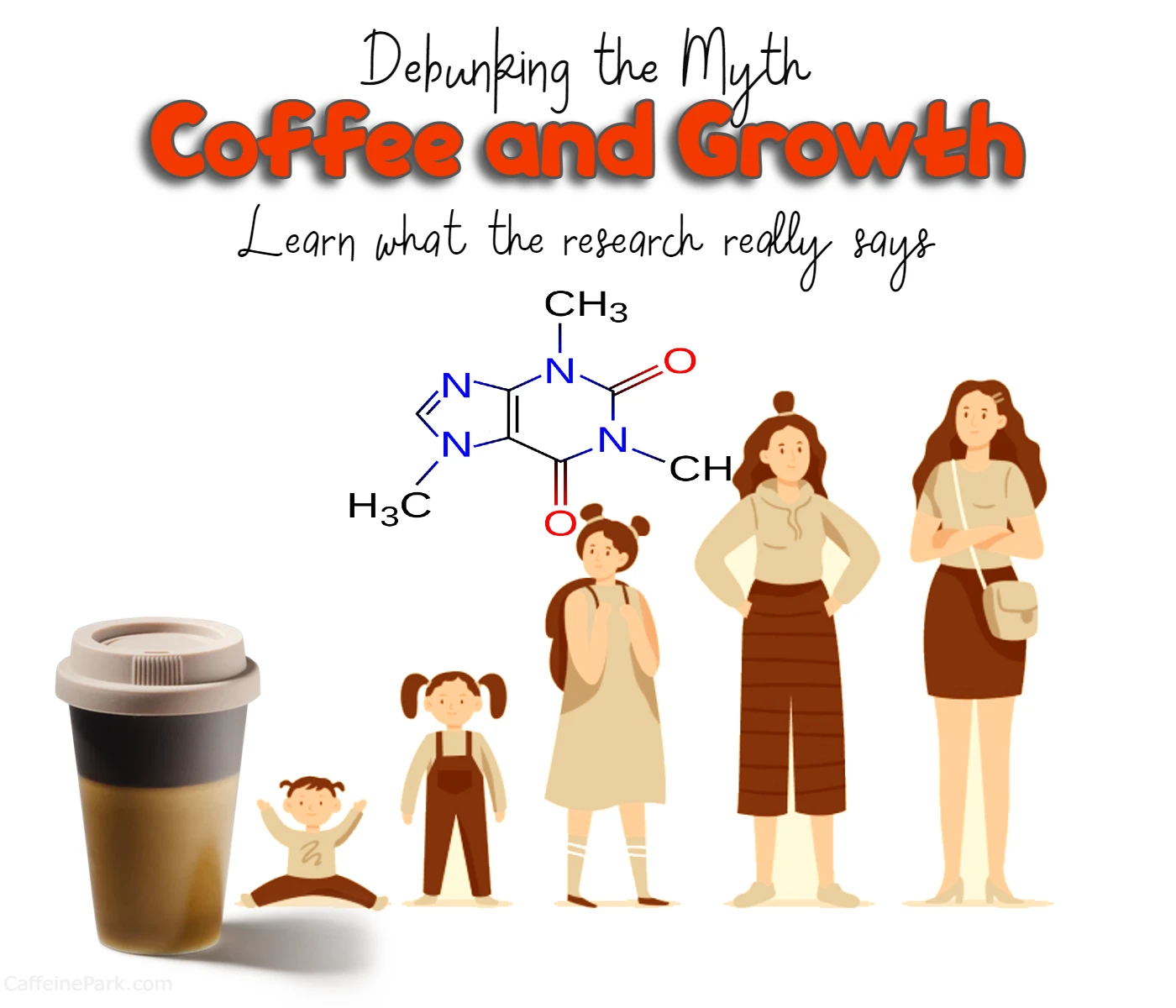
The Effects of Caffeine on Fertility
Welcome to my blog on the effects of coffee on fertility. If you’re someone who loves their daily cup of coffee but is also trying to conceive, you may be wondering whether your coffee habit could be impacting your fertility. The truth is, there is some evidence to suggest that high levels of caffeine consumption could have a negative impact on fertility.
In this article, we will explore the relationship between caffeine intake and infertility. We’ll look at the effects of caffeine on both men and women and examine the latest research on the topic. We will also discuss some recommendations on how much caffeine is safe to consume if you’re trying to conceive.
Whether you’re a coffee lover or simply someone who wants to learn more about how to optimize your fertility, this blog is for you. So, grab a cup of coffee (or your beverage of choice) and settle in as we explore the fascinating and complex relationship between caffeine and fertility. And, be sure to read all the way to the end of the blog for tips on optimizing your fertility, and advice on when to speak with a healthcare provider if you have concerns about your ability to conceive.
Does Caffeine Affect Fertility? Exploring the Evidence and Myths
As someone who enjoys a cup of coffee or tea every morning, I’ve heard many opinions about the effects of caffeine on health. Some people say it’s a harmless stimulant that boosts energy and mood, while others warn that it can cause anxiety, insomnia, heart palpitations, or addiction. However, when it comes to the question of whether caffeine intake can influence fertility, the answers are more complex and conflicting. In this article, I’ll try to clarify the relationship between caffeine and infertility by reviewing scientific studies and discussing the possible mechanisms and limitations.
Introduction: What is Caffeine and Why is it Popular?
Caffeine is a naturally occurring chemical found in many plants, such as coffee beans, tea leaves, cacao seeds, kola nuts, and guarana berries. It belongs to a group of compounds called xanthines, which can stimulate the central nervous system, relax the smooth muscles, and dilate the blood vessels. Caffeine is the most widely consumed psychoactive substance in the world, with an estimated 90% of adults in the US and Europe consuming it regularly in some form (coffee, tea, soda, chocolate, energy drinks, etc.). The average daily intake of caffeine in these regions is around 200-400 milligrams per person, which corresponds to 1-4 cups of coffee or 2-8 cups of tea.
Despite its popularity and ubiquity, caffeine is not an essential nutrient and can have both positive and negative effects on the body, depending on the dose, the timing, the individual sensitivity, and the context. Some of the benefits of caffeine include:
- Increased alertness, concentration, and memory
- Enhanced athletic performance, endurance, and fat burning
- Reduced risk of Parkinson’s disease, Alzheimer’s disease, liver cancer, and type 2 diabetes
- Improved mood, sociability, and creativity
Some of the risks of caffeine include:
- Increased anxiety, restlessness, and irritability
- Insomnia, especially if consumed in the afternoon or evening
- Heart palpitations, high blood pressure, and arrhythmias, especially in sensitive or hypertensive individuals
- Headaches, especially if consumed in excess or suddenly stopped after habitual use
- Gastrointestinal discomforts, such as acid reflux, bloating, or diarrhea
Therefore, the effects of caffeine on fertility are likely to depend on many factors, including the dose, the source, frequency, duration, age, sex, weight, health status, genetics, lifestyle, and environmental exposure of the individual.
What Does the Science Say about Caffeine and Fertility?
In recent years, there has been growing interested in understanding the relationship between caffeine intake and fertility. To shed light on this topic, a number of scientific studies have been conducted to investigate whether caffeine has any effect on fertility, particularly in women who are trying to conceive.
The findings of these studies have been mixed, but there is some evidence to suggest that consuming high amounts of caffeine may be associated with a lower chance of getting pregnant or a higher risk of miscarriage. For example, a meta-analysis of 14 studies published in 2020 found that women who consumed more than 300 milligrams of caffeine per day had a 12% higher risk of miscarriage compared to those who consumed less than 100 milligrams per day.
It is important to note, however, that this same analysis did not find a significant association between caffeine intake and infertility or subfertility (defined as the inability to conceive after one year of unprotected intercourse). This suggests that while caffeine may have an impact on pregnancy outcomes, it may not necessarily affect a woman’s ability to conceive.
Another meta-analysis of 9 studies published in 2018 also found a link between high caffeine intake and an increased risk of miscarriage. Specifically, the study found that women who consumed more than 200 milligrams of caffeine per day had a 27% higher risk of miscarriage compared to those who consumed less than 100 milligrams per day.
While these findings may be concerning, it is worth noting that the studies have some limitations. For example, they mostly rely on self-reported caffeine intake, which may not be entirely accurate. Additionally, other factors that may affect fertility, such as age, body mass index, and smoking, were not always taken into account in these studies.
Overall, the current evidence suggests that while there may be a link between high caffeine intake and pregnancy outcomes, more research is needed to fully understand the relationship between caffeine and fertility. If you are trying to conceive or are pregnant, it may be a good idea to limit your caffeine intake, particularly if you consume large amounts on a regular basis. However, it is always important to consult with your doctor or healthcare provider before making any significant changes to your diet or lifestyle.
Tips for optimizing fertility:
If you’re trying to conceive, there are some steps you can take to optimize your fertility. Here are a few tips:
- Limit your caffeine intake: While moderate caffeine consumption is generally considered safe, it may be a good idea to limit your intake to 1-2 cups of coffee per day when trying to conceive.
- Eat a healthy diet: Eating a diet that is rich in fruits, vegetables, whole grains, and lean protein can help to optimize fertility. Try to avoid processed foods, sugary drinks, and excessive amounts of red meat.
- Maintain a healthy weight: Being overweight or underweight can affect fertility, so it’s important to maintain a healthy weight through a balanced diet and regular exercise.
- Reduce stress: Stress can have a negative impact on fertility, so try to find ways to manage stress through relaxation techniques, exercise, or counseling.
- Get enough sleep: Poor sleep quality can affect fertility, so try to get enough sleep each night. Aim for 7-9 hours of sleep per night, and establish a regular sleep routine.
In conclusion, while the evidence on the effects of coffee on fertility is not yet conclusive, it’s worth being mindful of your caffeine intake when trying to conceive. Additionally, optimizing your overall health and wellness through a healthy diet, regular exercise, stress management, and good sleep habits can also help to improve your chances of conceiving. If you have concerns about your fertility, it’s always a good idea to speak with a healthcare provider, who can provide guidance and advice on optimizing your fertility.
It’s also important to remember that fertility is a complex process, and there is no one-size-fits-all solution for optimizing fertility. It may take time and patience, as well as support from your partner, friends, and family, to achieve your goal of conceiving a child.
If you are struggling to conceive, there are many resources available to support you, including fertility clinics, support groups, and online resources. Don’t hesitate to reach out for help and support if you need it.
In summary, while caffeine may have a negative impact on fertility at high levels of consumption, moderate caffeine intake is generally considered safe. Optimizing overall health and wellness through a healthy lifestyle, stress management, and good sleep habits can also help to improve your chances of conceiving. If you have concerns about your fertility, don’t hesitate to speak with a healthcare provider for guidance and support.
FAQs
While the evidence is not conclusive, several studies have suggested that high levels of caffeine consumption may increase the risk of infertility in women.
The American College of Obstetricians and Gynecologists recommends that women who are pregnant or trying to conceive limit their caffeine intake to 200 milligrams per day. This is roughly the amount of caffeine found in one 12-ounce cup of coffee.
There is some evidence to suggest that high levels of caffeine consumption may also have negative effects on male fertility. However, more research is needed in this area.
Some studies have suggested that decaffeinated coffee may have a smaller effect on fertility than regular coffee, but more research is needed to confirm this.
Some alternatives to coffee and tea that contain caffeine include chocolate, energy drinks, and some soft drinks. However, it’s important to be mindful of the amount of caffeine in these products and to limit consumption to the recommended levels. Alternatively, you could try switching to caffeine-free drinks like herbal tea or water.
Read More:





